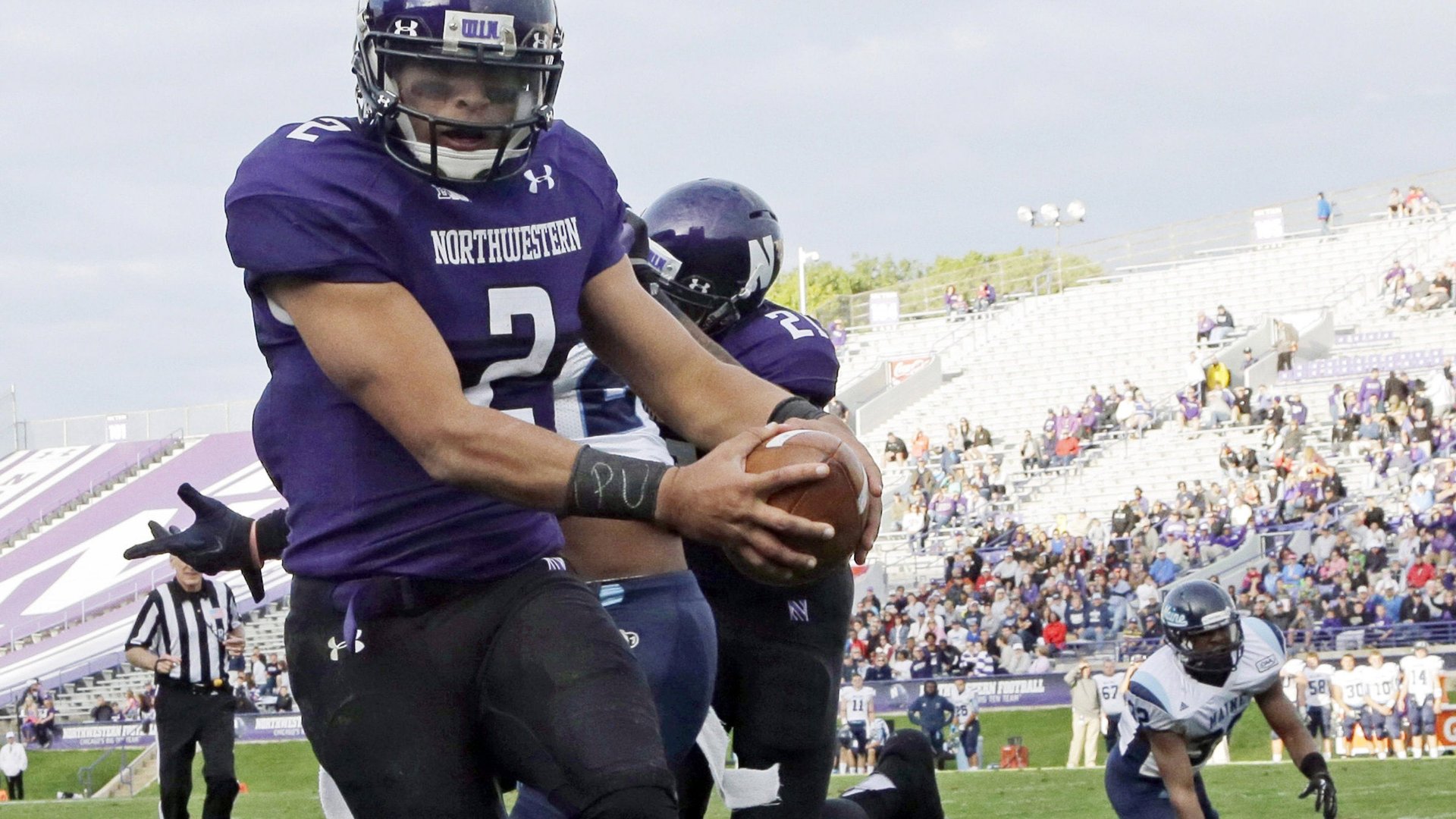Northwestern football’s threats to unionize mean more than actually doing it
Football players and nerdy PhD students may not seem to have a lot in common. Suddenly, we do.


Football players and nerdy PhD students may not seem to have a lot in common. Suddenly, we do.
This week, the National Labor Relations Board (NLRB) ruled that football players at Northwestern University are employees and they have the right to form a union. In 2000, the NRLB made a similar ruling about graduate students who work as teaching and research assistants—only to have it overturned four years later. As an almost-unionized PhD, I can only impart one piece of advice to the players: Use your market power now to get what you want.
Northwestern plans to appeal but that process is unpredictable. The university would be wise to give into the players’ demands now. And the players should take what they can, not only because of the uncertain appeal process, but because unionizing is actually not in their best interest.
Here’s the secret of unions: The threat of forming one is more powerful than actually joining one. As I wrote in an earlier Quartz column, when I was in graduate school, the economics of unionizing didn’t make sense. The membership dues would take a large chunk of our already meager stipends. Not only that, we’d have to declare ourselves employees, potentially exposing ourselves to higher taxes on our stipends and scholarships. We also worried that unionizing would drive a wedge between us and our employers, professors who acted as close mentors.
Similarly, football players also don’t benefit from unionizing. The tax implications are still unclear. Also, if football players unionize, why can’t basketball players? Or tennis players? What about women’s teams? The reality is that there’s a limited amount of cash players might squeeze out of the university. College sports’ revenue reached almost $900 million in 2012. But that’s revenue, not profit. Most schools lose money on college sports because the programs are expensive to operate and high revenue sports subsidize money-losing teams. Football is by far the biggest revenue-generating sport, even for teams with successful basketball programs. And so the only schools that turn a profit are the few with extraordinarily successful football teams. They tend to be state schools, and the NLRB ruling doesn’t apply to them.
There are major risks to these profits if players do indeed unionize, and colleges know this. Unionized players at private, but not public universities, create a two-tier system. Perhaps the more talented players would go to the private schools and that would pressure state schools to offer more too. Or the union demands would become so onerous that private university athletics might discontinue Division I sports and there would be fewer schools offering athletic scholarships. And then come the constant threat of strikes and lockouts (which soured fans of pro baseball and hockey can tell you all about).
In 2002, we graduate students were also concerned that a strike would be damaging (and we had much less at stake). We were also told there would never be a strike. But even before the appeal was heard, the pro-union group did organize a strike(my fellow economists proudly crossed the picket line). The promise of no strikes or lockouts is not credible because it the only real source of leverage.
In my case, Columbia successfully appealed. But before that, when unionization looked likely, we got a raise. Once the appeal was overturned, we lost all leverage. Few can argue with the football players’ demands: life-long health coverage for injuries sustained as players and an ability to quit the team and keep their scholarship to finish school. This is the least of what they deserve, if only as a true commitment to their education. But a union is not the best way to get these needs met. The very threat of it, though, gives both sides major incentive to reform college sports.
We welcome your comments at [email protected].